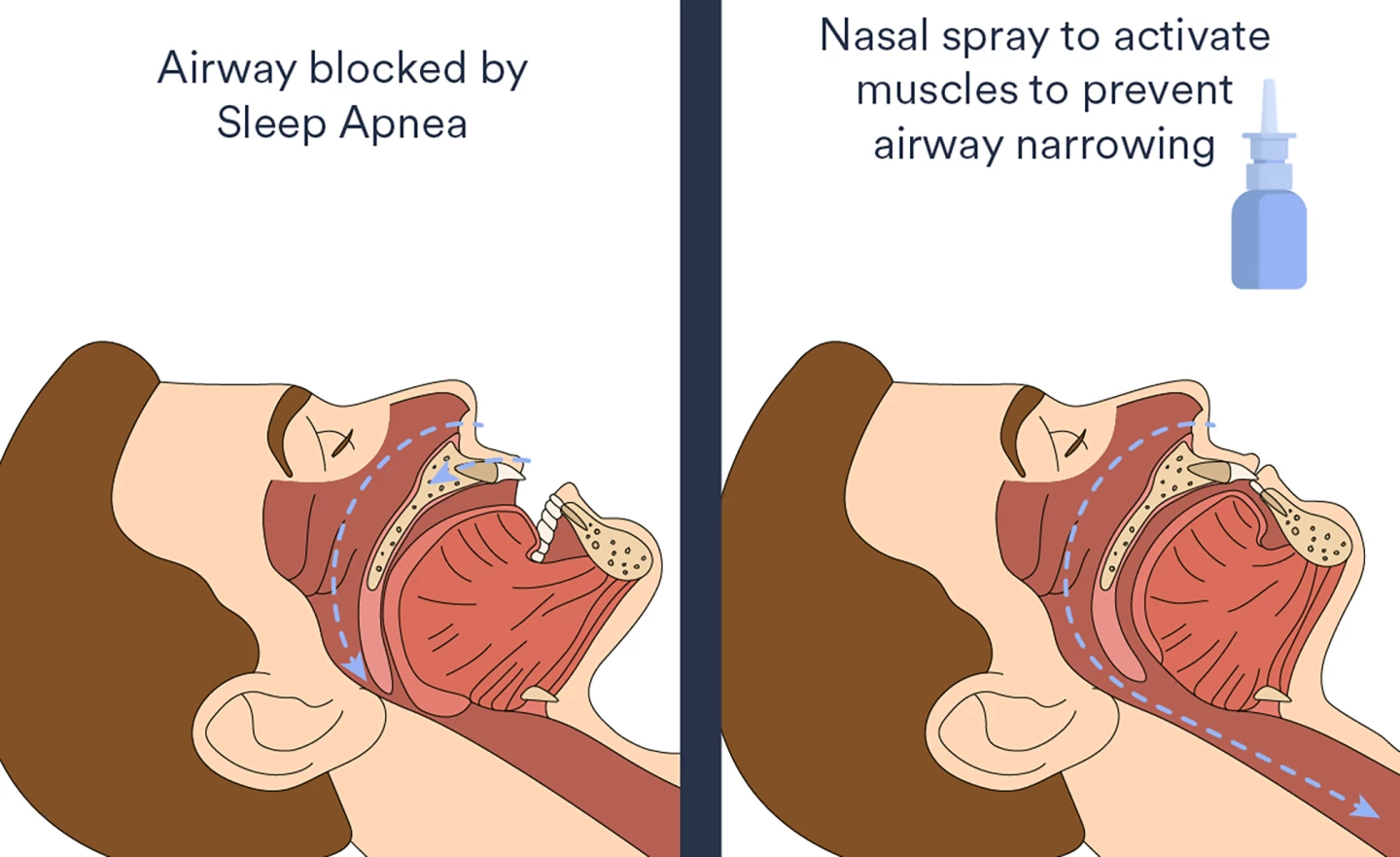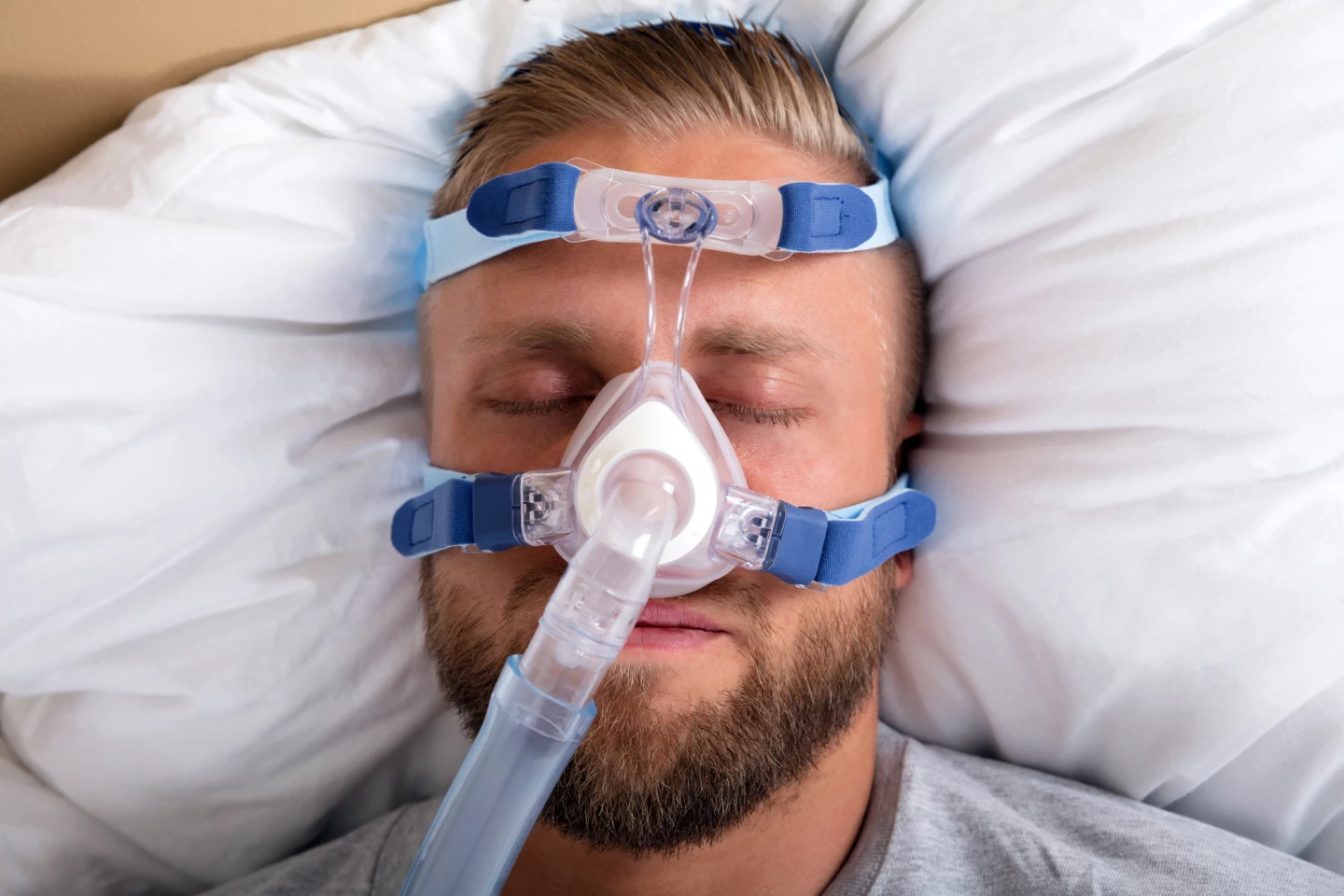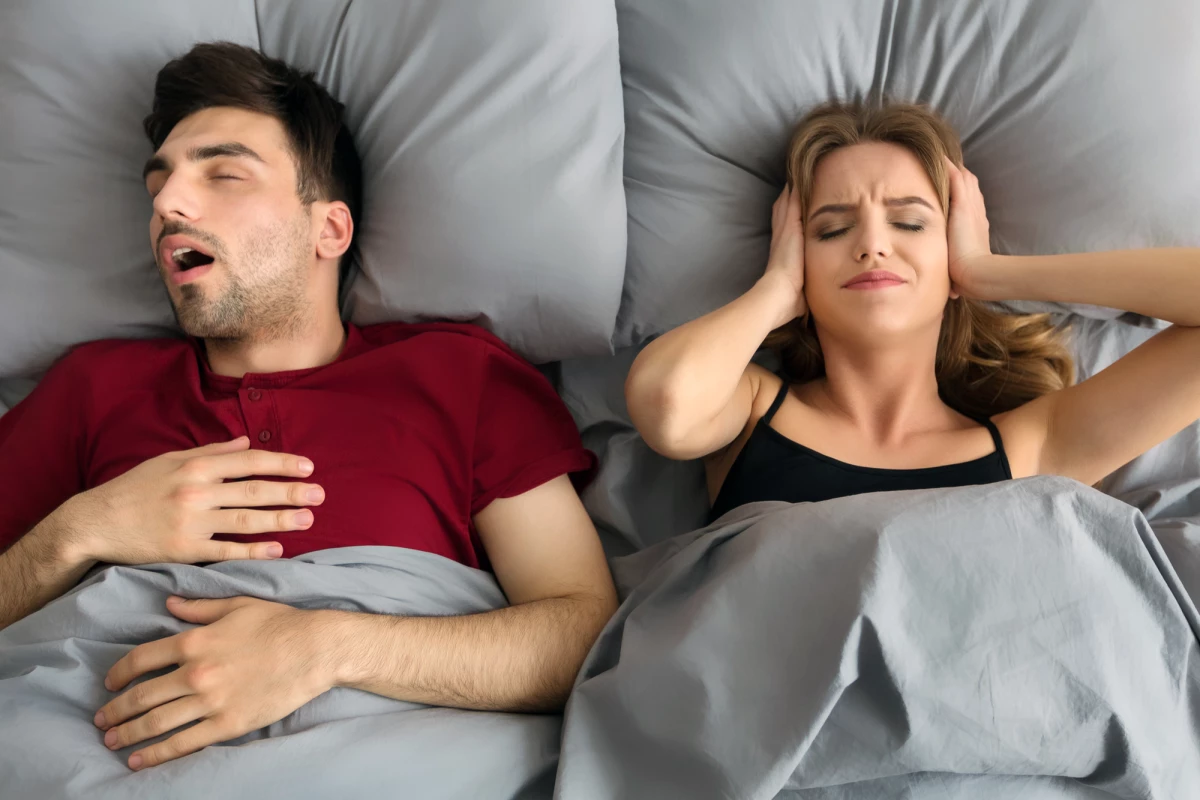Sleep apnea can negatively impact health and well-being, but treatment is limited to poorly tolerated positive pressure masks (CPAP) and, in the worst cases, surgery. However, in a recent trial, a nasal spray showed promise as a treatment for the most common sleep-related breathing disorder.
Obstructive sleep apnea (OSA) occurs when the upper airway collapses during sleep, reducing or completely blocking airflow. It’s primarily caused by a combination of impaired throat anatomy and inadequate muscle function during sleep. This leads to a drop in oxygen intake and arousal from sleep, which can have negative health and safety consequences, including daytime tiredness, difficulty focusing, and high blood pressure.
OSA treatment is limited. First-line treatment is a machine that provides continuous positive airway pressure (CPAP) to keep the airway from collapsing. Unfortunately, around half of people who use CPAP machines find them difficult to tolerate. In these cases, surgery to fix the anatomical obstruction may be considered.
Researchers from Flinders University in Australia conducted a small trial using a nasal spray to treat OSA and found it produced promising results.
“Obstructive sleep apnea (OSA) is a sleep disorder where the muscles in the back of the throat relax, and the upper airway narrows or collapses, restricting oxygen intake and causing people to wake repeatedly throughout the night,” said Danny Eckert, a professor at Flinders University’s College and Medicine and Public Health and one of the study’s co-authors. “It has been linked to a variety of medical conditions including cardiovascular disease, stroke, obesity, diabetes, anxiety and depression.”
The researchers tested a nasal spray to deliver a potassium channel blocker topically to the airway muscles to see if it reduced the severity of OSA symptoms.
“Potassium channel blockers are a class of drugs that block the potassium channel in the central nervous system,” said Amal Osman, the lead and corresponding author of the study. “When used in a nasal spray, the blockers have the potential to increase the activity of the muscles that keep the upper airway open and reduce the likelihood of the throat collapsing during sleep.”

Ten people (five women, five men; mean age 55) with OSA randomly received one of three treatments: a placebo nasal spray, a nasal spray containing a potassium channel blocker, or the blocker nasal spray with breathing restricted to ‘nasal only,' which involved the use of mouth tape or a chin strap. On average, participants were obese, had severe OSA, were not overly sleepy and did not have insomnia.
Participants completed three overnight sleep studies with a break of about a week between visits. The researchers found that seven of the 10 study participants showed a modest reduction in OSA severity when the nasal spray was combined with unrestricted breathing versus the placebo. Total oxygen saturation levels were higher with the unrestricted breathing nasal spray treatment than in the placebo group. Morning blood pressure measurements were also lower with the unrestricted breathing spray treatment.
Participants restricted to nose-only breathing did not show improvements despite receiving the potassium channel blocker via nasal spray. Instead, the researchers found that breathing and upper airway muscle function tended to worsen when a chin strap was used.

“What we have discovered is that the nasal spray application of the potassium channel blocker that we tested is safe, well tolerated,” Osman said. “Those who had a physiological improvement in their airway function during sleep also had between 25–45% reductions in markers of their OSA severity, including improved oxygen levels as well as a reduction in their blood pressure the next day.”
The study’s findings offer a new way of expanding treatment options for people with OSA.
“These insights provide a potential pathway for [the] development of new therapeutic solutions for those people with OSA who are unable to tolerate CPAP machines and/or upper airway surgery, and those with a desire for alternatives to existing therapies,” said Eckert. “Right now, there are no approved drugs for treating OSA, but through these findings and future research, we are getting closer to developing new and effective drugs that are safe and easy to use.”
The researchers plan to conduct larger studies to explore their initial findings further.
The study was published in the journal Heart and Circulatory Physiology.
Source: Flinders University







